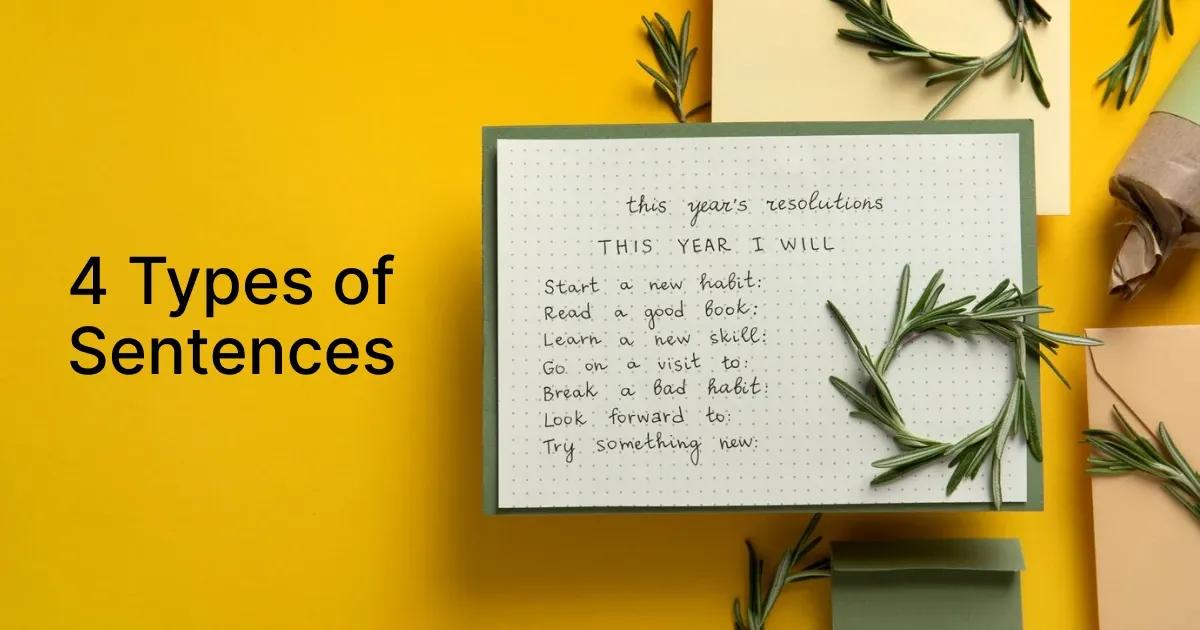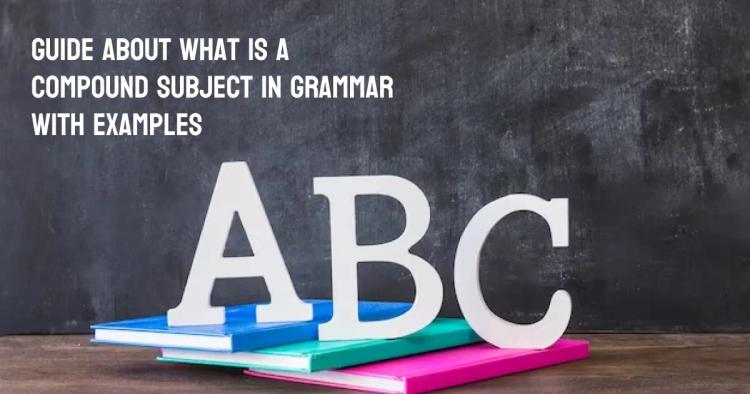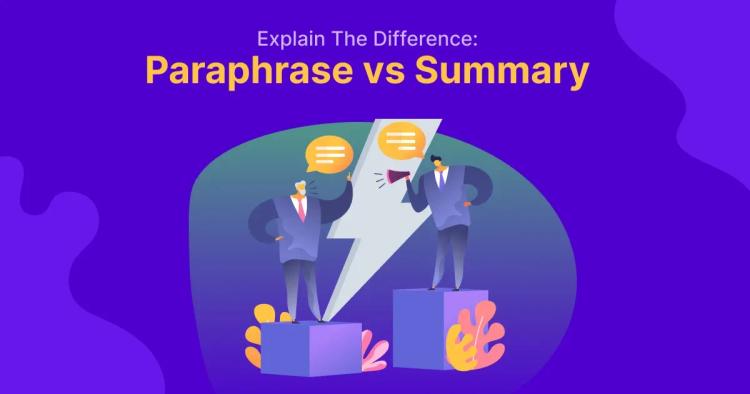In the vast world of words, each sentence holds a unique power. It's like discovering a treasure chest, unlocking the magic of communication. Think of a sentence as a tiny messenger, carrying your thoughts and feelings to others. From a simple "hello" to an intricate story, sentences are the bridges that connect us.
Today, let's embark on a journey to unravel the secrets of sentences, understand their types, and explore how they shape the way we communicate.
Have you ever wondered why some stories pull you in while others feel like a snooze fest? It's all in the sentences. The way we craft them, the emotions they carry, and the messages they convey make all the difference. So, buckle up as we delve into the heart of writing and discover the incredible impact of strong sentence construction.
Importance of Strong Sentence Construction
Imagine building a house. The foundation is like your sentences – strong and sturdy. Now, think about a wobbly foundation; it wouldn't hold up, right? Similarly, strong sentence construction is the backbone of good writing. It's the difference between a message that sticks and one that fades away.
Clear and powerful sentences grab attention. They create vivid images in the reader's mind, like a movie playing out in words. When your sentences are strong, your message becomes crystal clear. It's like turning on a light in a dark room – everything becomes visible and easy to understand.
But it's not just about being fancy with words. Strong sentences make your writing trustworthy. It's like shaking hands with your readers, saying, "Hey, I know what I'm talking about, and I want you to understand too." Whether you're telling a story, sharing information, or just chatting, strong sentences make your words resonate.
Enhancing Writing Skills with Sentence Variety
Sentence variety is like the spice rack of writing – it adds flavor, making your words more interesting and enjoyable. Just like a chef carefully selects various spices to create a delicious dish, a writer uses different sentence structures to craft engaging and dynamic content.
Think of it this way: if your writing is a song, sentence variety is the melody, the rhythm, and the harmonies all working together. It keeps your readers tapping their feet (or turning the pages) because they don't know what to expect next. It's the secret ingredient that transforms a plain sentence into a captivating paragraph.
But why does sentence variety matter so much? Well, imagine a story where every sentence is short and simple. It might get a bit dull, right? Now, picture a mix of short sentences, long sentences, questions, and exclamations – suddenly, it's like a rollercoaster ride for your reader's mind! Variety keeps things interesting and prevents your writing from feeling like a one-note song.
So, how can you add variety to your sentences? Experiment with lengths – combine short and snappy sentences with longer, more detailed ones.
How many types of sentences are there?
Okay, let's dive a bit deeper into the types of sentences. It's not just about throwing words on a page; it's about how those words function and how they're structured. So, how many types are we talking about?
First off, there are four main types based on function. Imagine each type as a superhero with its own superpower:
- Declarative Sentences – The Informers: These sentences make statements or share information. They're like your friendly neighborhood superhero, always there to provide facts.
- Interrogative Sentences – The Detectives: Ever curious? These sentences ask questions to uncover information. They're like the Sherlock Holmes of sentences.
- Imperative Sentences – The Commanders: Need someone to take action? These sentences give orders or make requests. They're like generals leading the charge.
- Exclamatory Sentences – The Emotion Express: Want to express strong feelings? These sentences convey excitement or surprise. They're the cheerleaders of writing.
Now, let's talk about sentence structures. It's like looking at the blueprints of a building to understand how it's put together:
- Simple Sentences – The Foundation: These sentences are basic, with just one main idea. Like the bricks in a wall, they build the foundation of your writing.
- Compound Sentences – The Builders: Want to connect ideas? Compound sentences join two independent clauses with a coordinating conjunction.
- Complex Sentences – The Weavers: For more intricate thoughts, complex sentences combine an independent clause with one or more dependent clauses.
- Compound-Complex Sentences – The Jugglers: The masters of complexity, these sentences juggle multiple independent and dependent clauses.
4 Types of Sentences According to Function
A. Declarative Sentences
Declarative sentences are like friendly statements. They tell us something or share information. These sentences end with a simple period, making them clear and straightforward. Think of them as the 'fact-tellers' in the world of sentences.
Examples of Declarative Sentences
- "The sky is blue during the day."
- "Elephants are the largest land animals."
B. Interrogative Sentences
Interrogative sentences are the question-askers. They start with words like who, what, where, when, why, or how and end with a question mark. These sentences are like little detectives, seeking answers and making us think.
Examples of Interrogative Sentences
- "Where did you go for vacation?"
- "Why is the moon so bright tonight?"
C. Imperative Sentences
Imperative sentences are the bossy sentences but in a friendly way. They give commands or make requests and can end with either a period or an exclamation mark, depending on how strong the command or request is.
Examples of Imperative Sentences
- "Pass me the salt, please."
- "Don't forget to water the plants."
D. Exclamatory Sentences
Exclamatory sentences express strong emotions or excitement. They always end with an exclamation mark, showing that something surprising or impressive has happened.
Examples of Exclamatory Sentences
- "What a delicious cake!"
- "I can't believe we won the game!"
4 Types of Sentences According to Structure
1. Simple Sentences
Simple sentences are like the building blocks of writing. They have one subject and one verb, making them easy to understand. Simple sentences express a complete thought.
Simple Sentence Examples
- "The cat sleeps."
- "She sings beautifully."
2. Compound Sentences
Compound sentences are a bit like teamwork. They have two independent clauses joined together with a conjunction (like and, but, or). It's like combining two simple sentences to make a more interesting one.
Compound Sentence Examples
- "I like ice cream, but my brother prefers cake."
- "She studied hard, so she passed the exam."
3. Complex Sentences
Complex sentences are like a mix of simple and compound. They have one independent clause and one or more dependent clauses. Dependent clauses can't stand alone; they need the independent clause to make sense.
Complex Sentence Examples
- "Although it rained, we still went to the park."
- "Since she finished her homework, she could watch TV."
4. Compound-Complex Sentences
Compound-complex sentences are a bit like juggling multiple things at once. They have more than one independent clause and at least one dependent clause.
Compound-Complex Sentence Examples
- "While I was cooking dinner, my sister was setting the table, and my dad was cleaning up."
Understanding these different types of sentences can make your writing more interesting and effective.
Copychecker's Grammar Checker Tool
In the vast world of writing, making sure your words are on point is like having a trustworthy friend by your side. That's exactly what Copychecker's Grammar Checker Tool is – your writing buddy who's always ready to help you shine.
Copychecker isn't just a grammar checker; it's your personal writing wizard. Think of it as a tool that's here to make your writing life easier and more exciting. It's like having a friend who's really good at catching mistakes and giving you tips to make your writing awesome.
How Copychecker Enhances Writing
Now, let's talk about how Copychecker takes your writing from good to great. It doesn't just fix mistakes – it helps you grow as a writer. Imagine you're learning to ride a bike, and Copychecker is there, holding the back of your seat, gently guiding you toward becoming a writing pro.
When you're typing away, Copychecker is like that friend who gently taps your shoulder and says, "Hey, did you mean to say it like that?" It's like having a writing mentor, giving you friendly nudges to express yourself more clearly and powerfully.
Features of Copychecker's Grammar Checker
1. Real-time Grammar Correction
Copychecker is like a superhero that corrects your writing on the spot. It doesn't wait for you to finish; it jumps in right away, fixing grammar slip-ups as you go. So, by the time you're done writing, your work is already polished and shining bright.
2. Style and Tone Analysis
Now, let's talk about style – it's like the personality of your writing. Copychecker isn't just about fixing grammar; it's also your style coach. It helps you understand your unique writing style and suggests tweaks to make your words match your personality or the vibe you want to create.
Imagine you're getting ready for a special occasion, and Copychecker is there, helping you choose the perfect outfit. It ensures that your writing style suits the occasion, whether it's a formal essay or a casual blog post.
3. Plagiarism Detection
Originality is your writing superpower, and Copychecker helps you protect it. It's like a guardian, making sure your work is 100% yours. If there's ever a hint of similarity with someone else's work, Copychecker raises its virtual hand and says, "Hey, let's make sure this is all yours."
Just think of Copychecker as your writing bodyguard, ensuring that your words are as unique as you are.
FAQs
What are the 4 types of sentences?
The four types of sentences are declarative, interrogative, imperative, and exclamatory. Declarative sentences make statements, interrogative sentences ask questions, imperative sentences give commands or make requests, and exclamatory sentences express strong emotions.
How many types of sentences are there?
There are four types of sentences. Each type serves a different purpose in communication, allowing writers to convey information, ask questions, give commands, or express emotions.
What are the 4 types of sentences according to function?
The four types of sentences according to function are declarative, interrogative, imperative, and exclamatory. Declarative sentences state facts, interrogative sentences ask questions, imperative sentences give commands or make requests, and exclamatory sentences express strong feelings.
What are the 4 types of sentences according to structure?
Sentences can be categorized into four types according to structure: simple sentences, compound sentences, complex sentences, and compound-complex sentences.
Simple sentences have one independent clause, compound sentences combine two independent clauses, complex sentences have one independent clause and at least one dependent clause, while compound-complex sentences have multiple independent and dependent clauses.
Conclusion
In the grand tapestry of writing, sentences are the threads that weave together to create a masterpiece. By understanding the four types of sentences and embracing variety, you elevate your writing to new heights. Remember, writing is not just a skill; it's an art, and with tools like Copychecker, you can refine that artistry, one sentence at a time.
So, go ahead, explore the world of sentences, experiment with different structures, and let your words dance across the page. Your writing journey has just begun, and the possibilities are endless.




